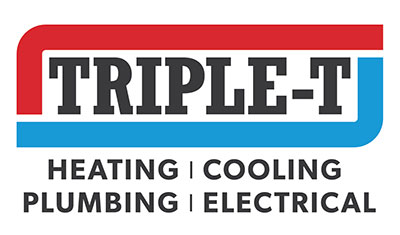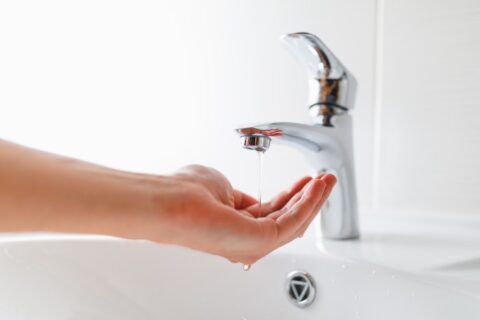5 Signs There’s Something Wrong with Your Drinking Water
Everyone wants clean water for drinking, showering, cooking, and cleaning. But if your tap water looks, smells, or tastes funny, these routine activities suddenly become a source of worry. Is it just a passing fluke, or could there be a more serious underlying problem? Learn more about water contaminants, their potential dangers, and how to ensure clean, safe tap water in your Utah County home.
Why are Water Contaminants a Cause for Concern?
To appreciate the importance of clean water, it’s crucial to understand the types of contaminants that could be lurking in your drinking water supply. They range from physical materials like dirt and sediment to chemicals like chlorine, lead, and arsenic. Microbes, including bacteria, viruses, and parasites, can also contaminate your water, and in rare cases, so can radioactive substances like cesium, plutonium, and uranium.
These contaminants pose a wide range of health risks. They can trigger gastrointestinal illnesses, cause neurological disorders, and lead to reproductive harm. The dangers aren’t just confined to your health, either. Poor water quality can shorten the lifespan of your plumbing system, leave water spots on dishes, result in dingy clothes, and cause other domestic woes.
How Do Contaminants Get into My Tap Water?
Water supplies can become tainted in many different ways. The sources of drinking water impurities depend on whether you use municipal or well water.
Municipal Water
If your water comes from a utility company, it’s typically sourced from local rivers, lakes, or reservoirs. The water is then processed at a water treatment plant to remove potential contaminants before being piped to your home. While these treatment facilities usually do a thorough job, the water must still travel to your home. Along this journey, water can pick up contaminants from aging infrastructure or fractured pipes.
Additionally, the treatment process itself can sometimes introduce contaminants. For instance, chlorine, commonly used for disinfection, reacts with natural organic matter to create chlorination byproducts like trihalomethanes (THMs) and haloacetic acids (HAAs). While usually present in low concentrations, these compounds can pose health risks over time.
Well Water
The water drawn from wells is often subject to different contamination sources. It comes from groundwater, which is naturally filtered as it moves through the soil. However, well water is not completely protected against contamination.
For instance, pesticides, fertilizers, and other chemicals can seep into the ground and contaminate the water supply. Industrial waste or septic system leaks can also contribute to groundwater pollution. Plus, natural deposits in the earth can introduce heavy metals like arsenic or radon.
Sulfur is also more common in well water than in treated municipal water, causing it to smell like rotten eggs. This scenario often prompts homeowners to wonder how to remove sulfur smell from well water.
Signs Your Drinking Water Could be Unhealthy
Whether you drink municipal or well water, the potential for contamination is real. But how can you tell if the tap water is unsafe? Here are five tell-tale signs that your drinking water may not be as clean as you hope.
1. The Water Looks Cloudy or Foamy
A clear sign of water contamination is when the water appears cloudy or has a foamy texture when it flows from the tap. If you notice this phenomenon, set the glass of water aside to see if the cloudiness dissipates. If so, the effect was probably caused by harmless air bubbles. But if the cloudiness remains, this most likely indicates the presence of physical contaminants or minerals that don’t belong in your drinking water.
2. The Water Tastes Funny
A strange taste is another clear sign that something is amiss. If your water tastes metallic, it could be due to high mineral concentrations or the presence of heavy metals such as lead or iron. An oily or fishy taste could indicate microbial contamination or certain chemicals in the water.

3. The Water Smells Like Sulfur
If your tap water emits a foul odor, you may wonder if that’s what sulfur smells like. In short, sulfur smell is akin to rotten eggs. The odor could indicate the presence of sulfur or certain bacteria in your water supply. It may help to flush the water heater if you notice the smell coming from the hot water.
4. The Water Smells Like Chlorine
Chlorine is commonly used to treat public water supplies. If your water smells like a swimming pool, it could indicate an overuse of chlorine, leading to high levels of THMs and HAAs. Research indicates that long-term exposure to these chlorination byproducts may increase the risk of reproductive issues and cancer.
5. The Water Leaves Residue Behind
If your water leaves behind stains, scum, or scale build-up, it could be contaminated with certain metals or minerals. For instance, brownish-orange stains could mean iron or copper has leached into your water, suggesting that your pipes may be rusting on the inside.
Then, hard water containing high mineral content can cause scale build-up on plumbing fixtures and inside pipes. Watch for a white, chalky residue on your faucets, shower doors, and drinking glasses. Consider installing a water softener to manage the issue.
Water Treatment Systems in Utah County
You deserve access to safe, clean water. At Triple T Heating, Cooling & Plumbing, we offer water treatment services designed to remove contaminants so the water you and your loved ones consume is safe for everyday use.
Our team has 50 years of experience providing tailored solutions for Utah County homeowners. Whether you’re dealing with hard water, microbial contaminants, or chemical impurities, we can recommend the right water quality solutions for your needs. Our trained professionals are dedicated to delivering quality services that exceed your expectations.
If you suspect your water might be contaminated, call us at 801-798-7711 or contact us online to find out more about installing a water treatment system in Utah County. You can trust us to provide a reliable solution that will help safeguard your home’s water supply.


